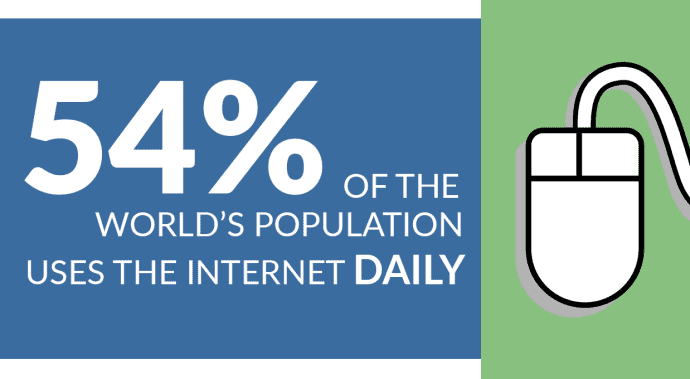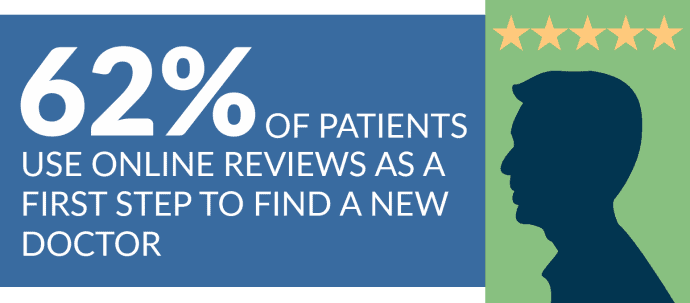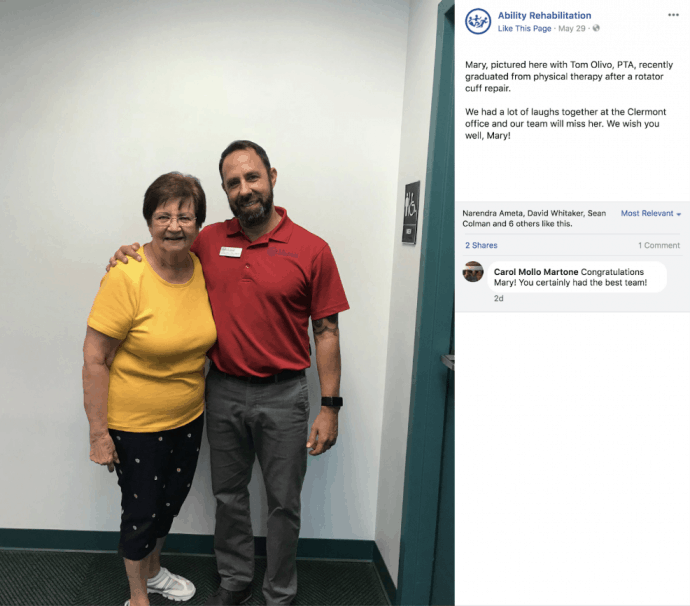Would you be keen to employ a HIPAA-compliant social media strategy to manage and enhance your online reputation, solidify your brand, and bolster your authority among patients?
Of course, you would.

Today’s reality (or virtual reality) means that your patients have access to you around the clock. They want to interact with you online (including on social media) and expect instant gratification from their requests. If you’re not all-in on social media, you’ll have a tough time keeping up with your competitors who are. Having an effective HIPAA-compliant social media strategy takes time, money, a game plan (from a social customer service standpoint), and a staff that is committed to and willing to be social.
[cta id=’23644′]Below we’ll break down 8 ways social media can allow you to grab hold of your online reputation and how you can create the optimal HIPAA-compliant social media strategy for your practice. We’ll also share some great tech tools to help you create a social media strategy to skyrocket patient satisfaction and retention.

1. Social Media Is (Still) Changing Health Care
The world is different from just two years ago, and social media has evolved right along. Social media continues to impact healthcare in new and dynamic ways; it has become something more transparent, interactive, and collective and forms a key part of your big-picture customer service strategy and your marketing plan moving forward.
Simply put, social media is another place where people (your patients) have conversations. People watch silently on social media (because they can). They look at what’s being said in those conversations, how it’s being said, and how others respond.
If someone has a beef, they will go onto Facebook and say it — instant gratification in real time for a 24/7 world mindset. The beautiful thing about social media from a professional standpoint is that you have a tremendous opportunity to tell the stories you want to tell. And your stories are at the core of your marketing strategy.

2. Social Media Matters
We’re probably preaching to the choir here, but if you’re still sitting on the social media fence, here are some stats to help you get off the sidelines and take notice:
- 54.4% of the world’s population uses the internet daily (as opposed to less than 1% in 1995)
- The average person spends about 3 hours a day on their smartphone
- Google processes 3.5 billion searches per day
- Facebook has 2.2 billion users (that’s slightly less than the populations of China and India combined)
- Almost 80% of all searches are for small businesses
- Searching for healthcare information is the 3rd most common activity on the internet
Not only that, but patients have access to your practice all day, every day. They can say and share whatever they want with the world (and they do). Telling your story is the best way to make your voice heard, build your brand, and take control of your reputation.
Social media isn’t only about posting a selfie with the Margherita you had on your birthday. It is intricately linked to customer service and your online reputation. You don’t just get on social media; you need to get IN social media.
Consider this. Companies that improve their customer experience from average to ‘Wow’ can see a 30-50% improvement in key measures (that means more happy customers who will share their positive experience online).
Practices need to appear engaged, caring, and professional to current and potential clients online (the ones who are watching) – whether that’s on social platforms or online reputation management sites. Almost 55% of consumers who shared a bad experience ended up sharing it more than five times, compared with 33% of those who shared a positive experience.

3. Online Reputation Management Booster
“It takes 20 years to build a reputation and 5 minutes to ruin it.”
– Warren Buffett
That’s certainly true for Mr. Buffet, but where your medical practice is concerned, today it may take you two years to build up your reputation — and only seconds to ruin it. 90% of your potential customer base pays attention to online reviews. In fact, negative reviews are generally seen as more trustworthy and perceived as greater use. Therefore, your social media strategy will have a direct impact on your online reputation score.
Online local/review sites such as Yelp and Healthgrades allow anyone to post a review for you (whether they’ve actually come to see you or not!). There are no barriers to entry and little protection against those who would use the medium to attack you (or praise you). Using social media as part of your overall online reputation management (ORM) strategy is your first line of defense in protecting and improving your online reputation.
Your reviews on review sites and social media will show up on the front page of Google search — they will be the first thing prospective patients see. It’s important to respond in real-time to both positive and negative reviews. Sometimes those reviews can get downright personal.
The worst thing you can do is to get personal in return. It would help if you had a few HIPAA-compliant responses ready to respond to these types of reviews in a professional manner that will stop the bleeding and may even benefit you in the long run.
Having several HIPAA-compliant response templates ready at hand will:
- Save you from scrambling around when you need to post a delicate and tactful reply.
- Take the conversation offline, if needed.
- Allow you to respond in a timely and efficient manner — 50% of consumers will stop doing business with a company if it takes that organization longer than a week to respond to a complaint.
Example Responses to Negative Reviews
“We are committed to providing patients the highest quality care and take your feedback seriously. Please call NAME, TITLE, at PHONE during regular business hours so we can obtain more details about your experience and address your concerns for future patients.”
“Due to privacy regulations, we can’t discuss specifics about your comments online, but we encourage you to call NAME, TITLE, at PHONE during regular business hours so we can obtain more details and address your concerns. We are committed to providing patients the highest quality care and take your feedback seriously. We look forward to hearing from you soon.”

Example Responses to Positive Reviews
“Thank you for taking the time to share your feedback with us. We’re thrilled to hear about the success of your visit with our team!”
“We are so grateful for the positive feedback! We’ll share your kind words with the team to let them know their work is appreciated. Thank you again for sharing.”
“We are thrilled to hear about your positive experience with our team. Our goal is to provide the very best patient care available, and we appreciate you taking the time to share your experience.”
It would be best if you had a strategy to counter what people say about you online. And that strategy boils down to how you respond on social media. When you’re on social media, you’re better positioned to counter the negative comments with positive reviews and content.
Bottom line: you’ve got to be proactive and have a mechanism in place so your patients can go online and leave positive reviews, whether it’s through reputation reviews or social media sites. You might use an email newsletter or a text alert system. We find a feedback page is the most effective solution for our clients, with random signs in the office directing patients there. Our physician clients also carry little cards around and hand them to patients who seem favorable to leave positive feedback. Do what works best for you.

4. Social Media Reviews Make All the Difference
The good news is that patient reviews on social media are often more visible than reviews on sites like Yelp and Vitals. The fact is that many people visit Facebook daily (typically morning, noon, AND night), and they don’t necessarily check out Yelp every day.
Being active and IN social media will:
- Strengthen patient engagement (allow you to have conversations with your patients that you wouldn’t normally have)
- Increase your exposure and reach
- Boost your search ranking results (SEO)
- Build your reputation
- Promote team-building among your staff
Social media directly impacts your reputation. Anything you do on social (posting, commenting, responding) helps you improve with Google’s search algorithm to boost you on search rankings and get you in front of more people’s eyes.

5. Telling Great Stories: Your Strategy for Social Media Success
When we take on new clients, we say up front that they need to buy into our strategy or work out. And that strategy centers around telling stories.
We believe that:
- Patients sharing their outcomes and telling their stories is more powerful than any message out there.
- When you lead with the patient, it creates an immediate connection with potential patients and serves as a massive differentiator for your practice.
- Providing free education and great content helps position you as the go-to expert and authority in your field.
- By being genuine, you can be genuinely effective.
When asked how they research doctors, 62% of patients use online reviews as a first step to find a new doctor, and 19% use online reviews to validate their choice before scheduling an appointment. Another 19% use online reviews to evaluate an existing doctor.
6. Don’t Just Manage Your Reputation…Rock It!
Your social media strategy shouldn’t just be geared toward damage control and responding to the positive or negative winds of reviews. You should use your social media strategy to rock your practice and shoot you into the stratosphere beyond your competition.
Your social media strategy should help you achieve the following:
- Position you as an expert in the community
- Emphasize patient outcomes (your results)
- Strengthen your reputation
- Increase organic SEO
One orthopedic practice we work closely with has learned how to knock it out of the park on social media.
Add Video
In the video above, Dr. Reuss gave a timely shout-out (for athletic trainers month) to an audience he cares about. He was authentic and genuine (and so was his assistant!). By being genuine, you will be genuinely effective! You can’t fake it, so don’t even try.
7. Staying HIPAA-Compliant
HIPAA refers to the law designed to provide privacy standards to protect patients’ medical records and other health information shared with health care providers. As you adopt a patient-first or patient-centered social media strategy, it is critical to consider patient confidentiality before using anything related to any individual (including images, testimonials, and letters).
Have blank copies of standard photo and video release forms when filming patient testimonial videos or using patient photos or candids for marketing purposes.
We may take it for granted, but it bears repeating. NEVER post personal or medical information on a social network. If you think the post is in bad taste, don’t post it. When in doubt, leave it out! Don’t set yourself up for failure. Here are some other basic HIPAA guidelines to follow:
- Actively inform and manage privacy concerns: you can only communicate directly with patients regarding their health information over social media channels if you’ve received their express permission to do so. You have made them aware of the risks associated with such communication through disclaimers on your website and in your practice brochures.
- Secure your network: as online connections increase, you and your IT personnel or internet service provider need to set up stringent security, access, and information sharing routes. It is critical to minimize your exposure to a HIPAA violation via a 3rd party vendor. Business arrangements with any 3rd party vendor are imperative to protect yourself in the case of any infractions. Without a signed business associate agreement, you’ll be at the top of the list for potential litigation; by having an agreement, the 3rd party vendor is on the hook.
- Hire a professional: If you lack the time or the resources to take charge of online HIPAA compliance effectively, consider training your staff or entrust the job to a professional who has a proven digital medical marketing record of success.
8. Tips for Effective Posts
Not sure what to post? Here are some tried and true post themes and ideas that our clients have used to rock it on social media:
Grab a photo or video of the doctor and patient
Nothing goes over as well as a quick candid shot of you or one of your physicians with a patient. Not only does the patient feel special (and maybe a little extra motivated to leave you a positive review), but it shows all of your followers that you care and that you’re a real person too.

Tell your patients’ success stories in a way that people will take notice
Don’t just manage your reputation. Market it. Using graphics like the ones below or a short two-minute patient video testimonial will make people take note of you on social media, boost your SEO, and drive more patients through the front door.


Create contests with your staff
When is the next major holiday? These are the perfect times to organize a friendly staff contest and drive your social media efforts through the roof with little effort. Inform your staff that on say, Valentines Day, they should dress up to celebrate the holiday. Tell them your social media fans will be voting on who has the best costume. The winner will receive a (fill in the blank…).
Empower your employees to tell their story
Designate an office manager or employee with the social savvy to find opportunities to take photos. These can be anything from stopping by the nursing station to highlighting your newly decorated office or even showing off someone’s cubicle theme. Anything to show that the office is human and relatable will work – even if you don’t think it’s photo-worthy, your followers will love it.
If you have younger doctors at your practice or those who are especially tech-savvy, give them access to the Facebook account and encourage them to take a photo when they can (and have a photo/video release form handy). Coming straight from the doctor or giving a “behind the scenes” look at what they do will drive your social reach through the roof.
Community Engagement
Are you donating your time to a charity or a community event? If you don’t take a photo of the video, it’s as if you weren’t there. Be proactive and snap a few shots of you in action. Your fans will love it.

The way the world communicates is changing, and you have two choices. You can be an active communicator controlling the story and the message that you’re putting out there. Or you can be a passive communicator and watch what everyone else is saying.
If you’re looking to build your professional or personal brand, you need to be an active communicator. Social media is now one of the many tools you have at your disposal to help you control the conversation.
Understanding basic HIPAA compliance, coming up with a strategy that leads with patient outcomes (not your credentials), and implementing it in an entertaining, engaging, and consistent way will make you an authority in your field. It will also allow you to grab hold of your online reputation and stand out from all others in the crowd.










